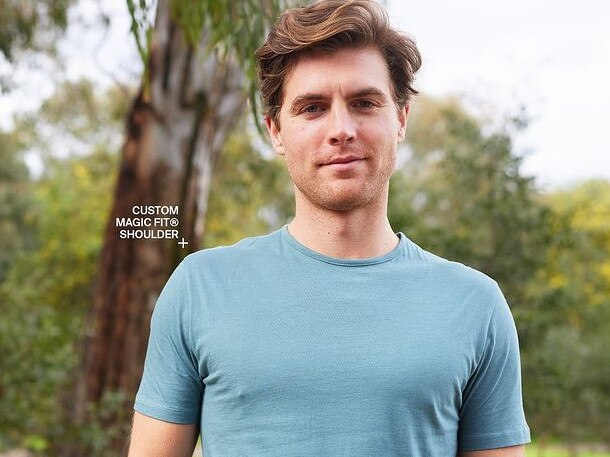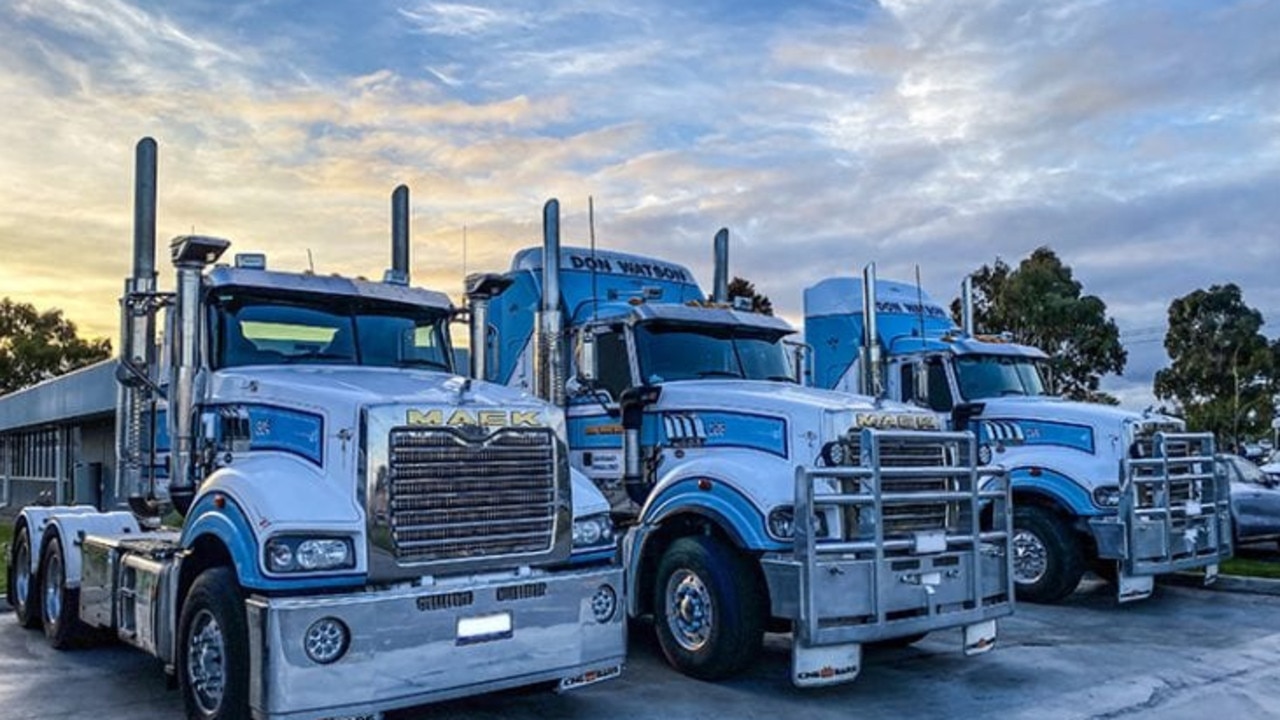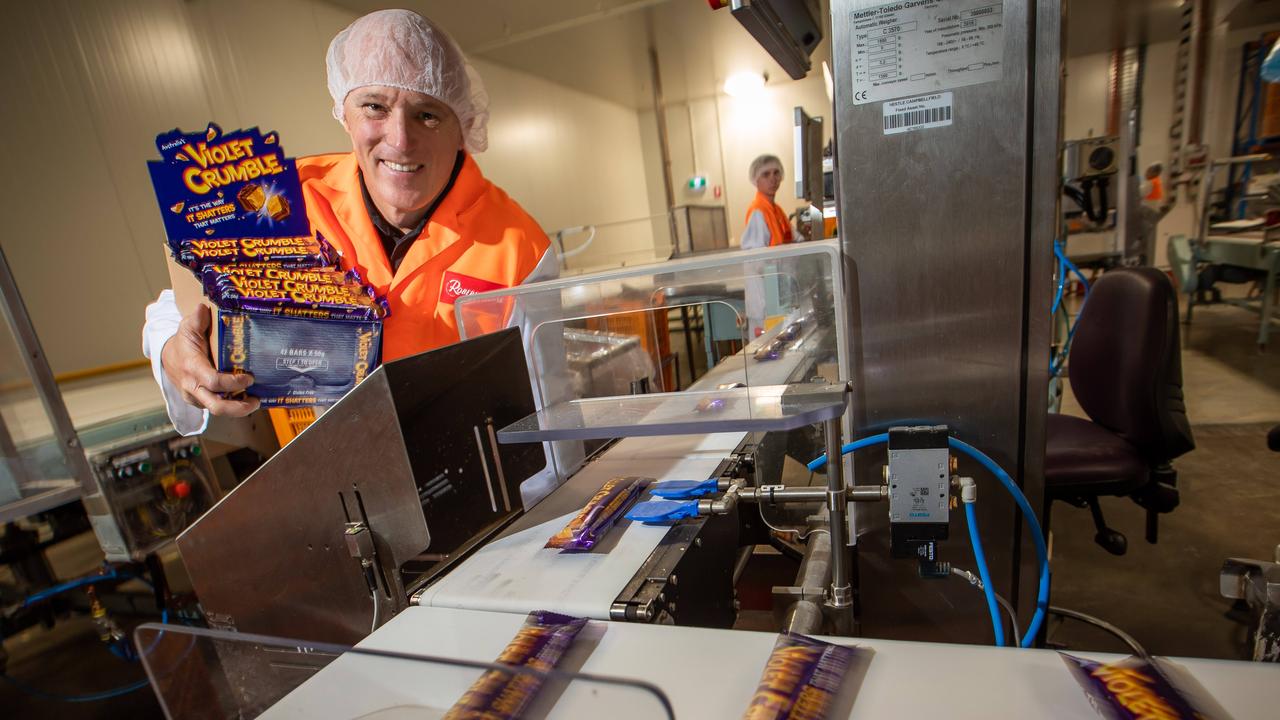Australian fashion that is eco-friendly – and the sustainable designers leading the charge
It’s not just about the look any more — Aussie shoppers want proof that fashion is made with a conscience. See the full list.
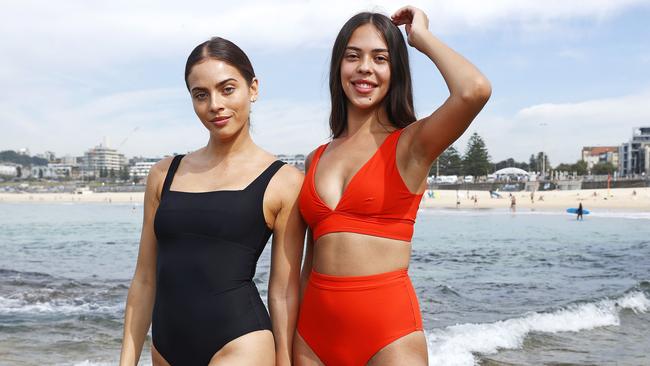
QLD Business
Don't miss out on the headlines from QLD Business. Followed categories will be added to My News.
There's a new fashion influencer in vogue – and it wants nothing to do with this season’s latest trends.
Australian shoppers are turning away from cheap, fast fashion brands made offshore and investing in not just the clothes but the way they’re made, style experts say.
The pandemic has made us more conscious of every part of our lives, including how we dress. What a garment is made from, how it’s constructed, and the factory in which it is made – and by who – as well as what the brand stands for, is becoming as important as its design. But it’s not as easy as looking at the tag.
Sustainability can be a complicated topic, and an increasingly misused term in the fashion world. Here are five brands that are putting it simply – and doing good.
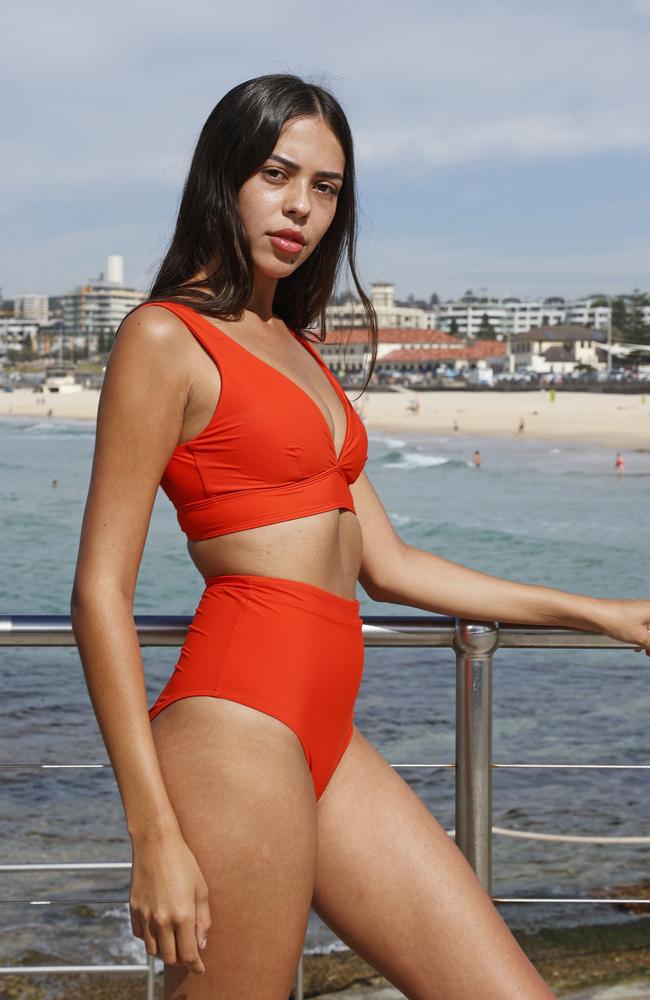
BONDI BORN
Luxury swim brand Bondi Born has B Corporation status, achieving one of the highest sustainability credentials possible.
Founded in 2015 by ex-media marketing executive Dale McCarthy, Bondi Born is made in Sydney from eco-conscious fabric.
“We’ve been operating in a sustainable and ethical way, making in Australia, and only using sustainable and ethical fabrics,” McCarthy says.
“A lot of brands say they’re sustainable and ethical but you dig deeper, and they’re made in China using fabrics from China.”
For McCarthy, fashion isn’t just about the bottom line.
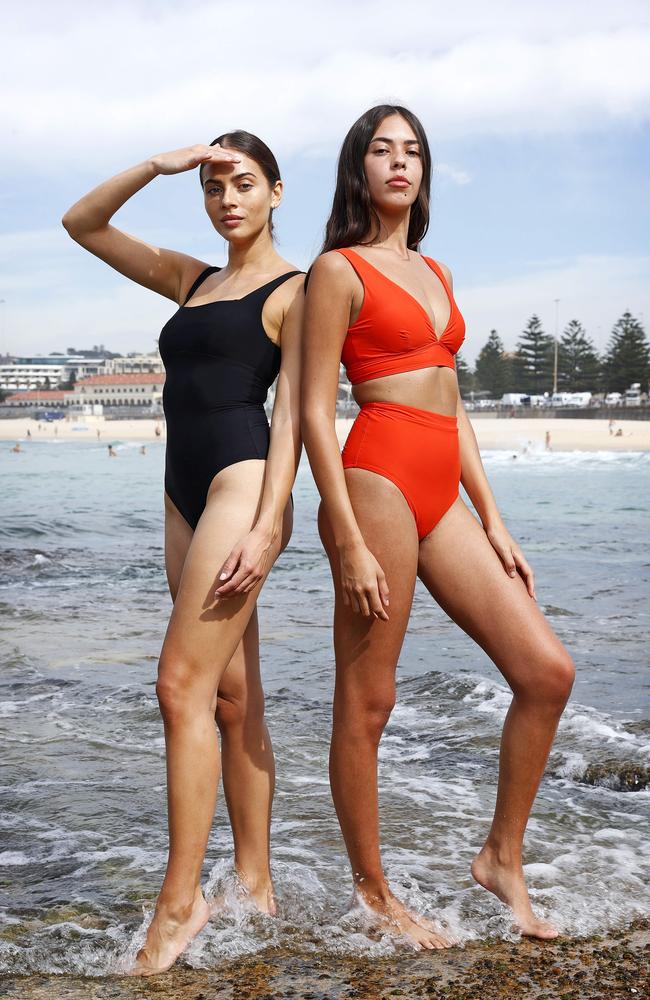
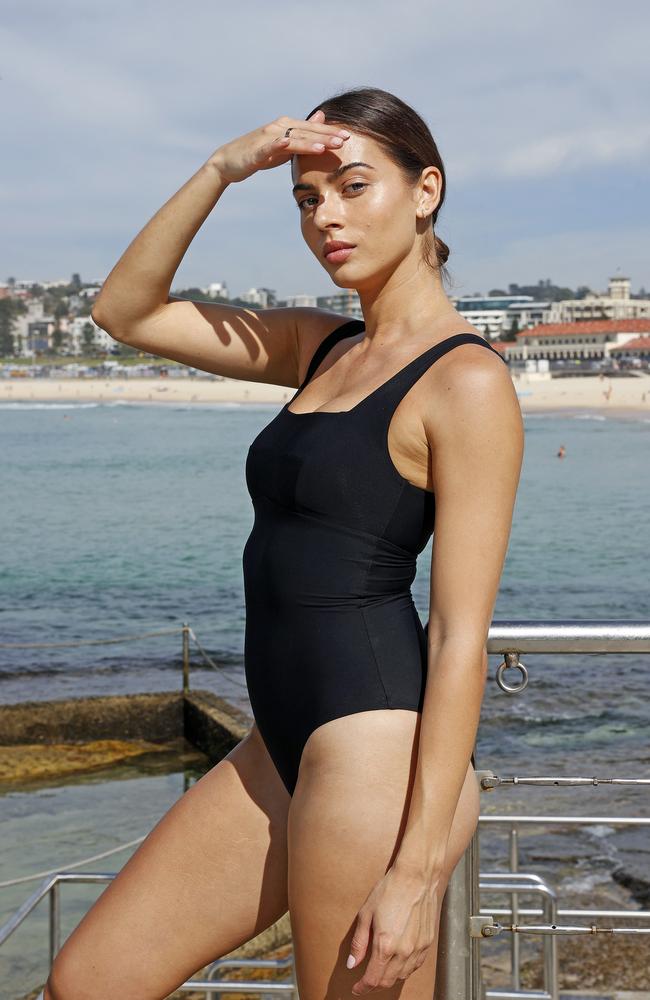
“We don’t look at fabrics until we see their eco certification,” she says. “Mostly they (suppliers) are in Europe and Japan.
“We use carbon-neutral paper and all our packaging is compostable.
“All of our makers are in Sydney, close to our warehouse. We physically visit them every day.”
But being sustainable comes at a cost, with McCarthy saying it “significantly impacts” on profit. “We will remain a smaller business because we won’t be able to do the high volumes,” she says of Bondi Born, which is stocked via its own website and at David Jones in Australia, and internationally via Net-a-Porter, Saks and Goop, among others.
“The vast majority of our revenue is non-Australian. The European market has a strong hunger for sustainable products.”
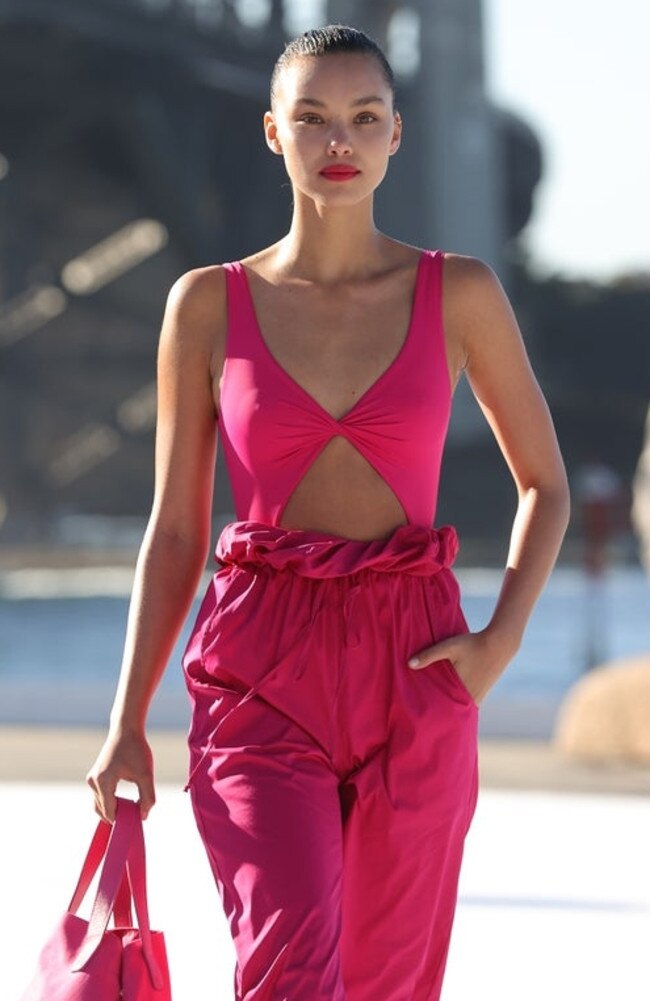
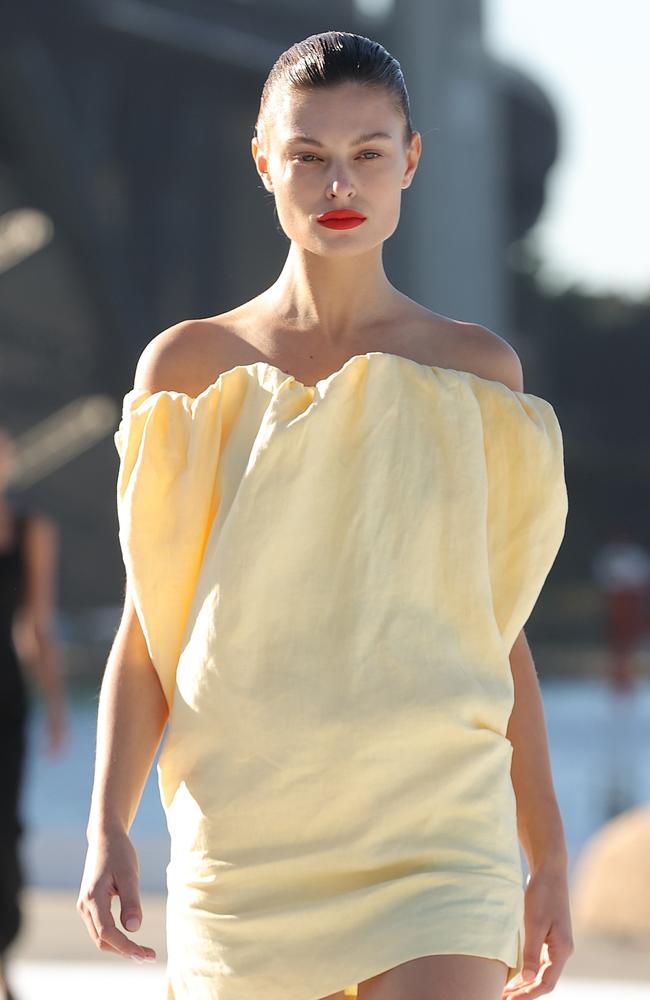
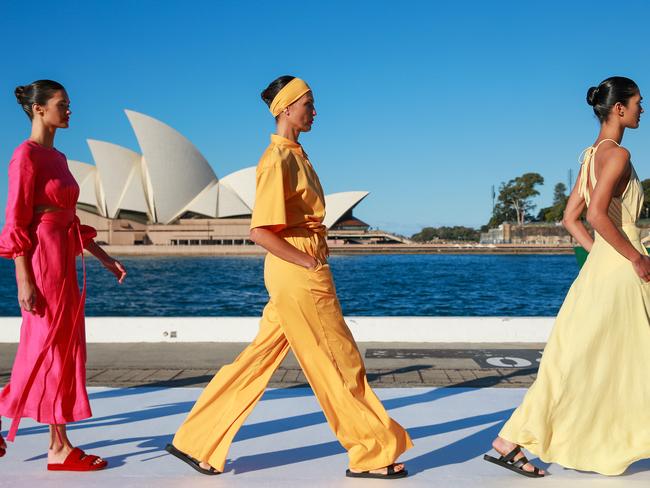
McCarthy says demand for sustainable fashion “has changed a lot over the past 9-12 months” in Australia, and is growing “significantly”.
This has been fuelled, in part, by a move towards investment dressing – spending more on fewer items that are better quality versus buying cheap, fast fashion.
“You don’t need to buy 20 dresses every season; I think people are moving towards buying fewer but buying better.”
McCarthy says Bondi Born’s prices – about $270 for a one-piece swimsuit – were “high by Australian standards”.
“Certainly, our margin isn’t as great as a lot of our competitors who do make in Asia,” she says.
“The cost of the fabric and the making, for me, is like 10 times higher than theirs in a lot of instances.
“I am importing the best quality fabric from Italy, paying Australian wages for the makers, it’s a world apart in terms of the cost of a product.
“As part of our B Corp ethos, we absorb some of the margin because we need to make a product that’s commercial – for me, that’s fine.”
McCarthy says the push for brands to bring manufacturing back to Australia will grow. “I’m optimistic that brands will return to make in Australia – consumers want it.”
OUTLAND DENIM
This Australian-owned brand had a 640 per cent surge in sales after the Duchess of Sussex wore its jeans.
With an A+ score from the World Aid Ethical Fashion Report and B Corporation status, Outland’s latest Sustainability Report shows its e-flow manufacturing process uses 90 per cent less water and 40 per cent less energy than standard industry practice.
The jeans are designed in Australia and made from organic cotton that is “farmed with zero use of agrochemicals, such as synthetic pesticides” at its manufacturing HQ in Cambodia.
Outland’s factory employs local women from vulnerable backgrounds and helps them reclaim their lives – some of its seamstresses, cutters and pattern makers were victims of human trafficking.
“It completely changes their lives in that we equip them with everything they need to be successful themselves, versus a dependency on our business,” Outland Denim founder James Bartle says.
Staff are trained in all aspects of the garment manufacturing process, with a focus on empowerment and career progression.
“Previously they would be used to making just a pocket and that would be all they’d do … with us, they can make the entire jean,” Bartle says.
VIKTORIA & WOODS
Viktoria & Woods is accredited by Ethical Clothing Australia and predominantly manufactures in Australia.
V&W uses sustainable fabrics including organic cotton, merino wool and bamboo blends.
Margie Woods, Viktoria & Woods’ creative director and founder, says the brand only manufactures garments overseas that can’t be produced in Australia.
“That could be due to expertise, machinery, or for more sustainable sourcing reasons,” Woods says. “Regardless of where we make products around the world, our suppliers meet specific ethical and environmental standards.”
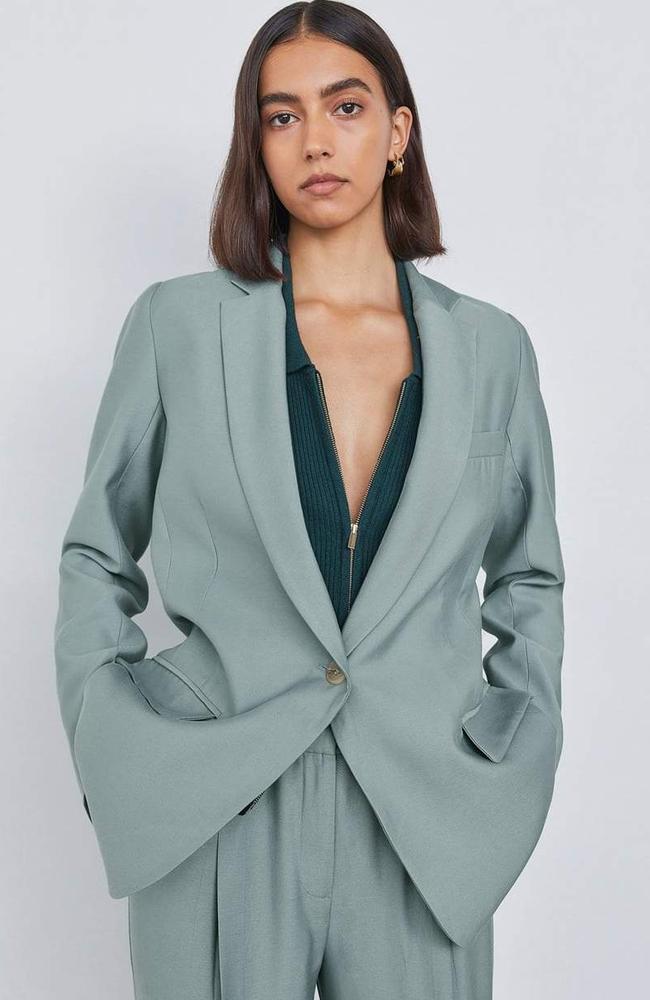
NOBODY
Made in Melbourne, Nobody Denim believes “in a triple bottom line approach that sees people and the planet as integral to our decision-making and direction”.
Accredited with Ethical Clothing Australia, Nobody minimises the carbon footprint of each garment and has a shorter supply chain: its head office, factory, laundry and retail store are located within a 6km radius.
Since 2017, Nobody is said to have reduced its water use by 50 per cent in its denim stone washing and bleaching processes.
“Most fabrics we use in our factory are accredited to OEKO-TEX Standard 100. This means they meet, and go beyond, national and international chemical standards,” the brand says in its sustainability policy.
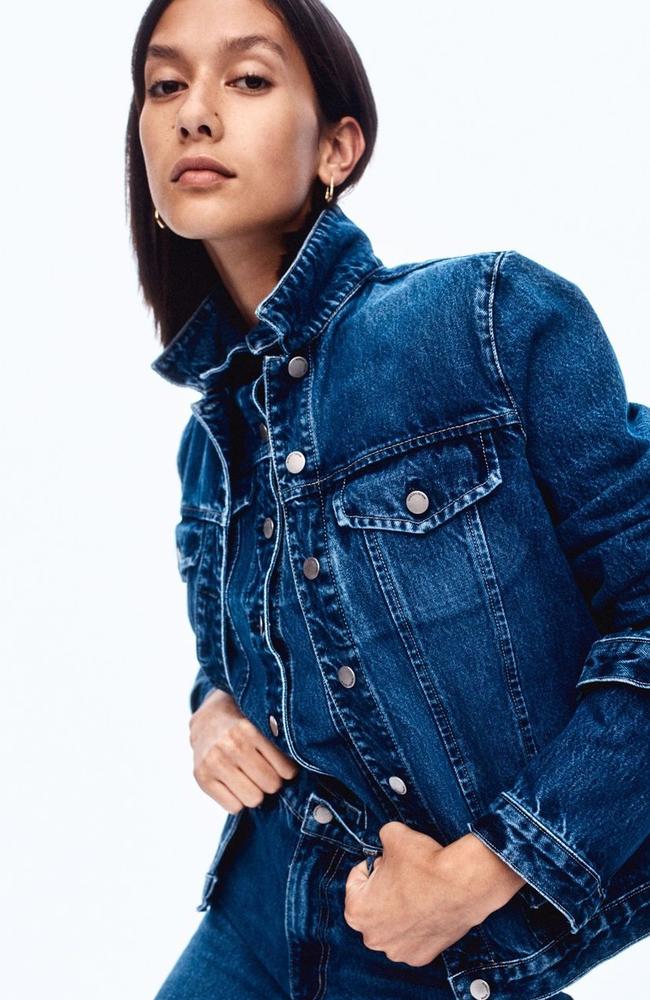
CITIZEN WOLF
Unisex label Citizen Wolf, made in Sydney, describes itself as “carbon negative”.
A typical fast fashion T-shirt “creates 5.6kg CO2 whereas a Citizen Wolf tee creates only 2.9kg CO2 – equivalent to a 48 per cent reduction,” the brand said in its sustainability ethos.
Citizen Wolf is certified by Ethical Clothing Australia and its merino wool adheres to Responsible Wool Standard and is cruelty-free.
Eighty-six per cent of Citizen Wolf’s fabrics are knitted in Melbourne at one of Australia’s last remaining mills.
“We’re proud to be a part of the renaissance in Australian manufacturing and every Citizen Wolf tee is cut and sewn in our state-of-the-art Sydney factory which is open to the public,” a brand statement says.
